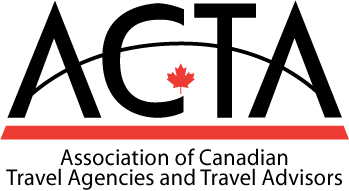ACTA speaks out on fuel surcharges. It’s not a tax, so why treat it like a tax?
Canada has one of the highest fuel surcharge to government tax ratios in the world when evaluating fuel surcharge fees on an airline ticket.
The problem is not the mandatory government taxes we pay on our airline tickets but the fact that no one is monitoring and taking control of what consumers pay to airlines in the form of additional fuel surcharges. These fuel surcharges in turn are kept for the airlines themselves as additional revenue and are non commissionable to the travel agent.
While we welcome the small decrease in fuel surcharge (YQ) in some European markets, we deplore the unjustified increases in many others, most notably +$96 for Finland and +$136 for Spain (round-trip). Airlines justify the changes by using terms like “realignment” which is code for copying what the other carriers in the market are doing. Perversely, more often than not the practice leads to higher, not lower,YQ prices, irrespective of what is happening with actual fuel costs.
The challenge that ACTA members face is that there are no rules on the fuel surcharge and competing airlines continue to get creative in the way they charge identical prices for an array of inexplicable fuel surcharges on similar flights. For example, why should someone pay more fuel surcharges on a business class ticket if they’ve already paid more to fly business class? This practice has set off red flags to our membership suggesting that there may be something more to this issue. ACTA wonders how is it that competing airlines have the same YQ surcharges? Surely YQ surcharges are not exempt from competition? While ACTA witnesses stiff airfare competition daily, we feel this YQ charge should not be exempt from competition and included in commissionable revenue to the travel counsellors who have the responsibility of collecting and explaining these surcharges to the consumer. For reference, the practice of issuing YQ surcharges is outlawed in New Zealand and a few other countries.
Recently The Canadian Transportation Agency (CTA) said it will no longer “closely monitor” fuel fees levied by airlines where previously airlines were required to set expiry dates on fuel surcharges. This judgment came during an Air Canada request to extend a fuel surcharge on international flights that was set to expire March 31. Regulators waived the deadline, deleted a requirement that carriers make all fuel surcharges subject to expiry, and immediately extended the decision to all airlines.
The reason for this judgement was because the CTA felt that, "since airlines must now advertise all charges, it no longer needs to closely monitor surcharges, fuel or otherwise, as its fundamental concerns related to price transparency have been addressed”.
ACTA questions the benefit of reduced federal monitoring of surcharges and does not agree that we can afford to be more lenient just because we "think" simple transparency will create competitive pricing including the way fuel surcharges are administered. We agree transparency helps our members explain to consumers what the charges are, but that does not necessarily mean they have choices and travellers will continue to face an array of inexplicable fuel surcharges. ACTA will be sitting down with the CTA to discuss issues described in a recent CTA submission. Fuel surcharges will come up. We feel price transparency doesn’t mean anything without a competitive market. With the new leniency towards filing fuel surcharges we wonder whether the competition will continue among airlines to ensure consumers get good prices. To date the CTA reports being satisfied that carriers are complying with full-price disclosure requirements.
The bottom line is that it has become more and more challenging to define the airline ticket price and the percentage paid to government in mandatory taxes. It is very alarming in the cases where airlines are paying commissions through preferred contracts, the base fare (upon which commissions are paid) is shrinking as these “YQ charges” continue to grow. With fuel prices stabilized for a long time now ACTA will continue to learn more about the practice of purchasing, reselling, and moderating of fuel and find ways to provide input towards a better solution. We will investigate opportunities to work with other agency organizations locally and internationally to better understand this practice and draw government attention to the fact that they should be concerned that these charges are reflected as a tax when in fact it is not.
